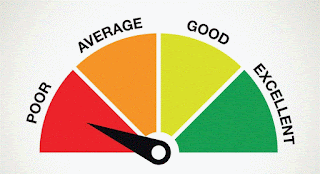 |
| Finance |
Congratulations! You have just become a college graduate. This is exciting -- and maybe scary -- time. You're probably looking to start a career, earn your first significant paycheck, take your serious relationship to the next level, find a new place to live, and accomplish a lot more fun stuff.
But you might also be staring down the barrel of a lot of heavy financial issues: paying down student loan debt, saving up for those big life changes, figuring out how to manage your own finances, and determining how soon you'll need to start thinking about retirement. (Spoiler alert: now.)
Don't worry. I'm going to give you four tips to financial success
that will make it all a lot simpler.
1. These Are Your Financial Priorities
You have a lot going on right now. The best thing to do is to take a deep breath, relax, and plan. Start by determining your financial priorities. Most people will want to focus on the following (in order of importance):
You have a lot going on right now. The best thing to do is to take a deep breath, relax, and plan. Start by determining your financial priorities. Most people will want to focus on the following (in order of importance):
- Building up an emergency savings fund.
- Paying down your highest-interest-rate debt.
- Repaying your student loans.
- Balancing debt repayment with saving for retirement.
2. Save What You Can for Retirement and Future Needs
If you're earning an income from a full-time job, it's time to start contributing to your retirement accounts and investing some of your savings. It's never too early to start making progress in this area because time is your biggest advantage as an investor.
The earlier you start, the more your nest egg will eventually be worth -- even if you don't feel like you're saving much. The secret is compound growth -- something so potent that when people claim Einstein called it one of the most powerful forces in the universe, folks believe it.
Even if it's just $50 or $100 a month right now, contribute what you can to your retirement and major savings accounts that will help you cover future needs and expenses. And then don't touch it.
Make this easier on yourself by taking advantage of "free money" opportunities where you can. Your company benefits package is an excellent place to start.
3. Live Frugally to Aggressively Pay Down Debt
Learn this lesson as soon as possible: Material stuff doesn't make you any more of a person. Possessions are unlikely to make you genuinely happy and fulfilled. So stop wasting your money by trying to accumulate things, things, and even more things.
Instead, make sure your spending is in line with your priorities and your values. You worked hard for your money, so be mindful of what you purchase with it. Embrace living frugally -- which doesn't mean living cheap.
Being frugal means you're more resourceful and less wasteful. It means you're not pressured into buying things you don't need -- or maybe don't even want -- by your peers, family members, or a society that encourages mass consumerism.
Once you've realized you don't have to spend every cent you make on stuff that you don't really value, you should have money to allocate toward your debt. Get aggressive with your loan or credit card balance payments.
The sooner these big debts are gone, the sooner you'll be more financially stable and secure. The longer you hang on to debt, the longer you'll be unable to advance other financial goals, and the more money you'll be paying in interest.
4. Establish a Side Hustle
Feel like there's not enough money to go around each month to cover all your financial goals, expenses, and wants? You do have the power to solve this problem. It's called a side hustle. Any kind of part-time work you can do on the side will accelerate your progress as you repay debt, save for the future, and acquire the money you need to make big things happen in your newly independent, real-world adult life.
3. Live Frugally to Aggressively Pay Down Debt
Learn this lesson as soon as possible: Material stuff doesn't make you any more of a person. Possessions are unlikely to make you genuinely happy and fulfilled. So stop wasting your money by trying to accumulate things, things, and even more things.
Instead, make sure your spending is in line with your priorities and your values. You worked hard for your money, so be mindful of what you purchase with it. Embrace living frugally -- which doesn't mean living cheap.
Being frugal means you're more resourceful and less wasteful. It means you're not pressured into buying things you don't need -- or maybe don't even want -- by your peers, family members, or a society that encourages mass consumerism.
Once you've realized you don't have to spend every cent you make on stuff that you don't really value, you should have money to allocate toward your debt. Get aggressive with your loan or credit card balance payments.
The sooner these big debts are gone, the sooner you'll be more financially stable and secure. The longer you hang on to debt, the longer you'll be unable to advance other financial goals, and the more money you'll be paying in interest.
4. Establish a Side Hustle
Feel like there's not enough money to go around each month to cover all your financial goals, expenses, and wants? You do have the power to solve this problem. It's called a side hustle. Any kind of part-time work you can do on the side will accelerate your progress as you repay debt, save for the future, and acquire the money you need to make big things happen in your newly independent, real-world adult life.













